第85章 GAMBLING IN GENERALS(1)
On July 22,1862,there was a meeting of the Cabinet.The sessions of Lincoln's Council were the last word for informality.The President and the Ministers interspersed their great affairs with mere talk,story-telling,gossip.
With one exception they were all lovers of their own voices,especially in the telling of tales.Stanton was the exception.
Gloomy,often in ill-health,innocent of humor,he glowered when the others laughed.When the President,instead of proceeding at once to business,would pull out of his pocket the latest volume of Artemus Ward,the irate War Minister felt that the overthrow of the nation was impending.But in this respect,the President was incorrigible.He had been known to stop the line of his guests at a public levee,while he talked for some five minutes in a whisper to an important personage;and though all the room thought that jupiter was imparting state secrets,in point of fact,he was making sure of a good story the great man had told him a few days previous.[1]His Cabinet meetings were equally careless of social form.The Reverend Robert Collyer was witness to this fact in a curious way.Strolling through the White House grounds,"his attention was suddenly arrested by the apparition of three pairs of feet resting on the ledge of an open window in one of the apartments of the second story and plainly visible from below."He asked a gardener for an explanation.The brusk reply was:"Why,you old fool,that's the Cabinet that is a-settin',and them thar big feet are ole Abe's."[2]
When the Ministers assembled on July twenty-second they had no intimation that this was to be a record session.Imagine the astonishment when,in his usual casual way,though with none of that hesitancy to which they had grown accustomed,Lincoln announced his new policy,adding that he "wished it understood that the question was settled in his own mind;that he had decreed emancipation in a certain contingency and the responsibility of the measure was his."[3]President and Cabinet talked it over in their customary offhand way,and Seward made a suggestion that instantly riveted Lincoln's attention.
Seward thought the moment was ill-chosen."If the Proclamation were issued now,it would be received and considered as a despairing cry--a shriek from and for the Administration,rather than for freedom."[4]He added the picturesque phrase,"The government stretching forth its hands to Ethiopia,instead of Ethiopia stretching forth her hands to the government."This idea struck Lincoln with very great force.It was an aspect of the case "which he had entirely overlooked."[5]He accepted Seward's advice,laid aside the proclamation he had drafted and turned again with all his energies to the organization of victory.
The next day Halleck arrived at Washington.He was one of Lincoln's mistakes.However,in his new mood,Lincoln was resolved to act on his own opinion of the evidence before him,especially in estimating men.It is just possible that this epoch of his audacities began in a reaction;that after too much self-distrust,he went briefly to the other extreme,indulging in too much self-confidence.Be that as it may,he had formed exaggerated opinions of both these Western generals,Halleck and Pope.Somehow,in the brilliant actions along the Mississippi they had absorbed far more than their fair share of credit.Particularly,Lincoln went astray with regard to Pope.
Doubtless a main reason why he accepted the plan of campaign suggested by Halleck was the opportunity which it offered to Pope.Perhaps,too,the fatality in McClellan's character turned the scale.He begged to be left where he was with his base on James River,and to be allowed to renew the attack on Richmond.1But he did not take the initiative.The government must swiftly hurry up reinforcements,and then--the old,old story!Obviously,it was a question at Washington either of superseding McClellan and leaving the army where it was,or of shifting the army to some other commander without in so many words disgracing McClellan.Halleck's approval of the latter course jumped with two of Lincoln's impulses--his trust in Pope,his reluctance to disgrace McClellan.Orders were issued transferring the bulk of the army of the Potomac to the new army of Virginia lying south of Washington under the command of Pope.McClellan was instructed to withdraw his remaining forces from the Peninsula and retrace his course up the Potomac.[6]
Lincoln had committed one of his worst blunders.Herndon has a curious,rather subtle theory that while Lincoln's judgments of men in the aggregate were uncannily sure,his judgments of men individually were unreliable.It suggests the famous remark of Goethe that his views of women did not derive from experience;that they antedated experience;and that he corrected experience by them.Of the confessed artist this may be true.
The literary concept which the artist works with is often,apparently,a more constant,more fundamental,more significant thing,than is the broken,mixed,inconsequential impression out of which it has been wrought.Which seems to explain why some of the writers who understand human nature so well in their books,do not always understand people similarly well in life.And always it is to be remembered that Lincoln was made an artist by nature,and made over into a man of action by circumstance.If Herndon's theory has any value it is in asserting his occasional danger--by no means a constant danger--of forming in his mind images of men that were more significant than it was possible for the men themselves to be.